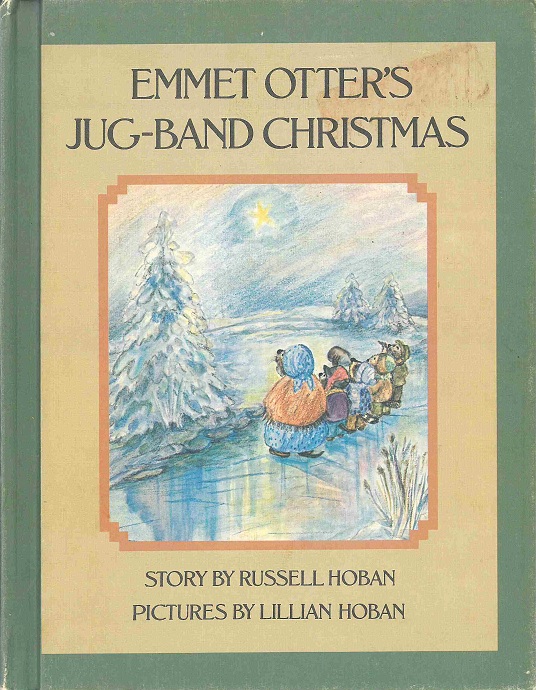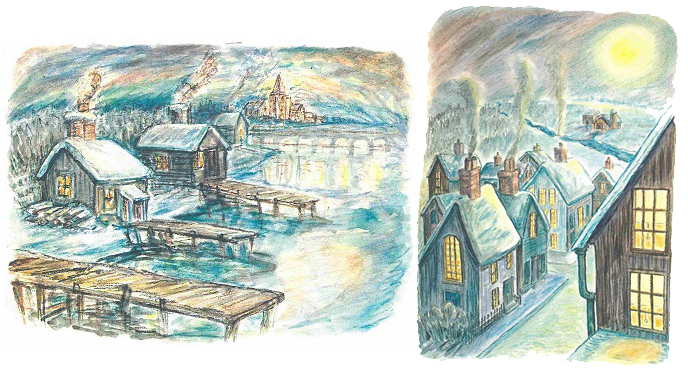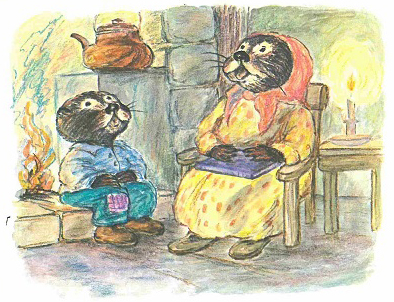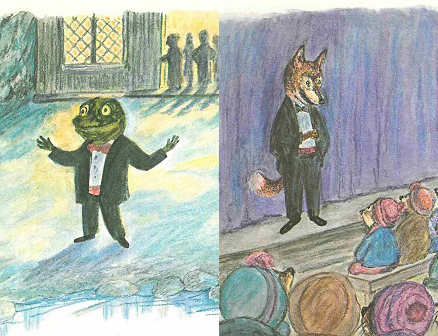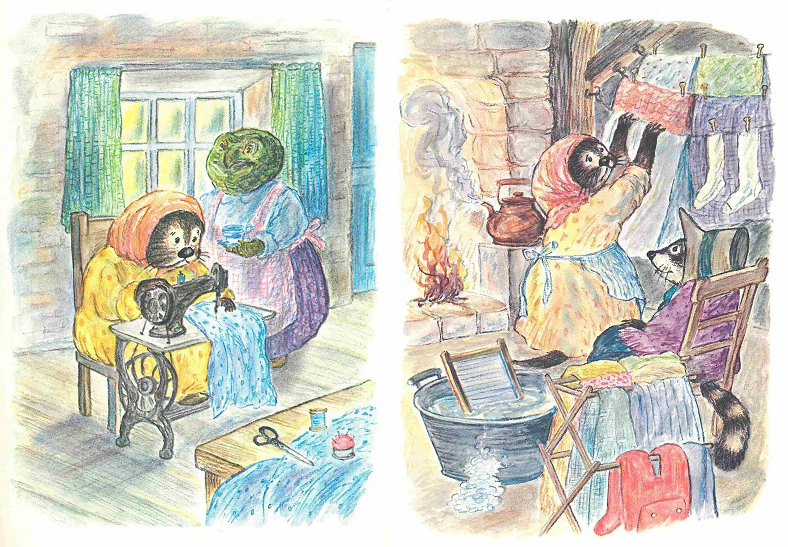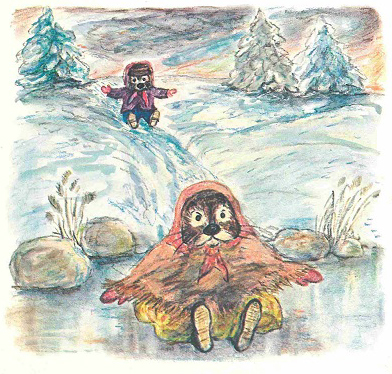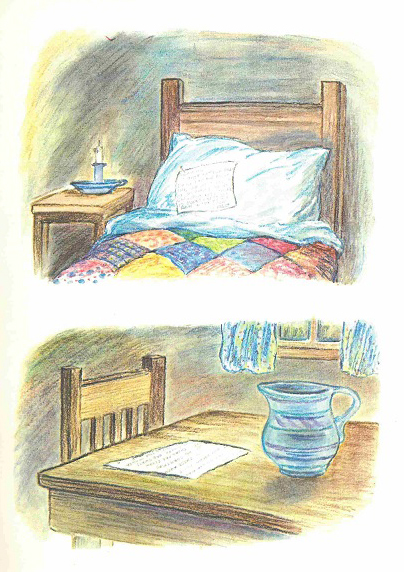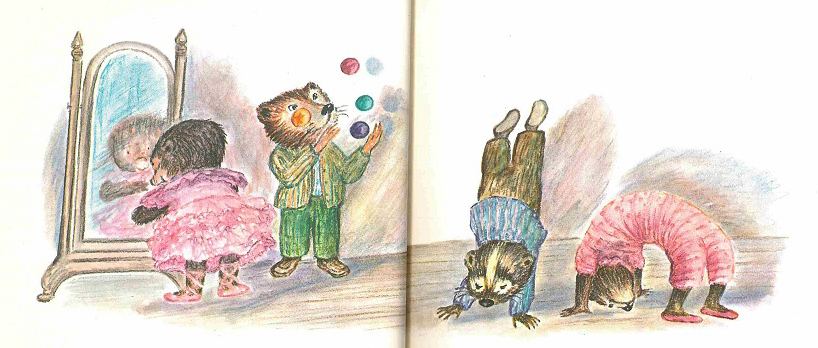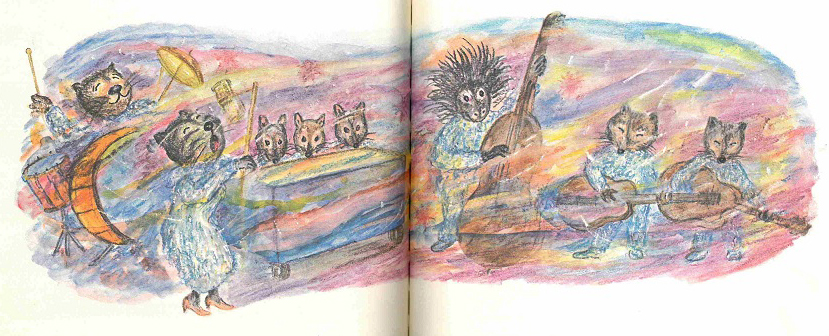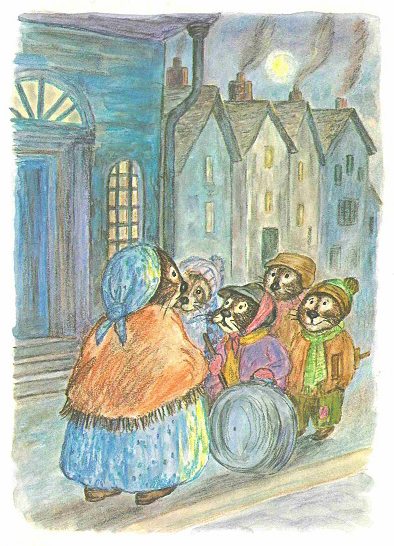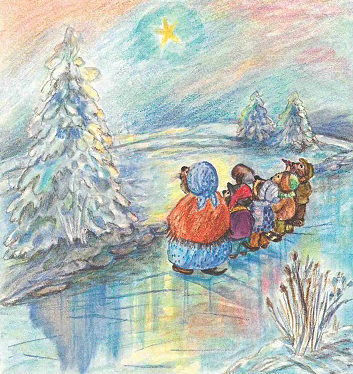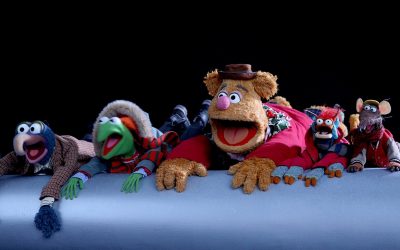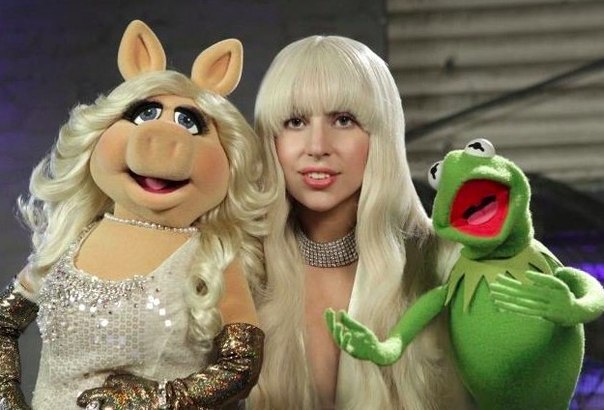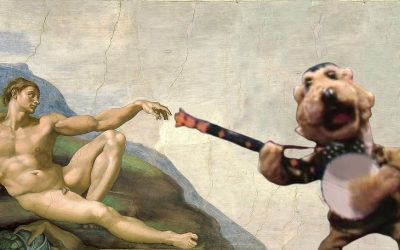Emmet Otter’s Jug Band Christmas is a holiday classic amongst holiday classics. It’s charming and timeless and worth revisiting every Christmas. And all of that is still true, even if you take the Muppets out of the conversation.
When Jim Henson found the “Emmet Otter” book by Russell and Lillian Hoban, he must’ve seen a lot of the same qualities and potential in creating a new classic. Likewise, songwriter Paul Williams found inspiration for all of the wonderful songs he wrote for the special from the pages of the book.
As of this writing, the original “Emmet Otter” book is being sold used for $33 on Amazon and $50 on eBay, so I’m guessing that not many of you out there own it. I luckily found my own copy at a used book store in Virginia for about a dollar, six or seven years ago. So I guess that’s one way you can get one without paying through the nose.
Since so many people have seen and fallen in love with Emmet Otter without having read “Emmet Otter”, we thought it would be interesting to make a comparison between the two, and to see what Jim Henson kept for his adaptation and what he opted to change.
Now put a hole in your washtub and sell your son’s tool box, because here we go!
Right off the bat, we’re introduced to Frogtown Hollow, the tiny town where Emmet and Ma live. When Jim Henson created the environment for Emmet Otter, he adapted Lillian Hoban’s illustrated beautifully. He might as well have just cut out the pictures and pasted them into the background, because he absolutely nailed the scenic design.
And then we meet Emmet and Ma, and if you didn’t know already, you’d be hard-pressed to decide whether the puppets were based on the illustrations or vice versa. Normally a puppet would have to be altered to fit the medium, but the faces, heights, shapes, and costumes are spot-on from the book.
Not all of the characters made as easy a transition, as you can see from Doc Bullfrog, although Harrison Fox’s illustration and puppet likenesses could be brothers. I mean, the same guy. You know what I mean.
For a kids’ movie, it’s always a little jarring to hear them talk about Pa’s death. But really, do they ever say those words? Pa has “left”, or we “lost” him, but I’m not sure they flat-out say “Pa died.” The book, however, comes clear with that statement as early as page 3: “Emmet Otter’s father was dead”. Just like the Marleys, Pa is dead as a doornail.
Our first non-otter characters to appear are Ma’s friends. In the movie, we only know Hetty Muskrat, but the book also introduces us to the terrifying Esther Snapper and the possibly-changed-for-racial-sensitivity Irma Coon. It was smart to pare down these one-page characters to just one, and it was smarter to do away with Irma Coon.
Meanwhile, Emmet joins up with his future jug band, including Harvey Muskrat and Charlie Beaver. Wendell is not the dim-witted porcupine we all know, but Irma Coon’s son. Once again, let’s just avoid all that potential racism, shall we?
Pa’s slide, where we saw some of the shoddiest and most unintentionally hilarious marionette work in Jim’s career, found its inspiration in the original book. It’s only there for one page, and we can still have a laugh at it without the marionettes by recognizing Ma’s resemblance to a piece of candy corn.
After the slide, Ma and Emmet finally introduce a little music into the story. Among the songs they sing are “Down the Slide with Dora,” “Swimming Nellie Home,” and “We’ll Go Fishing in the Moonlight.” But two other familiar songs are included: “The Bathing Suit That Grandma Otter Wore” and “Downstream Where the River Meets the Sea.”
Just think. At some point, Paul Williams, about to write his very first song for Jim Henson and the Muppets, read this book and got to this page. He probably considered writing a song about swimming with Nellie or sliding with Dora, but instead, he was drawn to the one about an elderly otter’s swimsuit. And we’re so incredibly grateful that he did, because now we have been gifted with that standard keeping-warm-while-you’re-rowing song “The One Bathing Suit“.
And then he one-upped himself by removing the “downstream” and writing “Where the River Meets the Sea”, which is among the most beautiful and bittersweet songs the Muppets have ever recorded. I know that it’s probably poor form to come up with a song title before writing the song, but in this case, it was pure gold.
Speaking of songs, there’s no sign of “Barbeque,” “Our World,” or “Brothers” in the book. Instead, Emmet’s jug band sings “Sister Possum” for the talent show. (The lyrics are potentially scandalous: “Going to Old Man Possum’s shack / Sister Possum waiting out back”.) If asked for an encore, they’ll sing “Downstream Blues”. Meanwhile, Ma sings “We’ll Go Fishing in the Moonlight” and “Swimming Nellie Home”. Honestly, I can’t help but wonder what Paul Williams’ takes on these songs would’ve been if he had limited himself to the original titles.
In the movie, there’s a bit of poetry to the notes that Ma and Emmet leave each other when they go off to hock the tool box and put a hole in the washtub. They both say that they’ll be back later, and that they’ll explain about the missing items when they return, but the notes say those two statements in reverse order. The notes in the book are slightly different: Ma’s note tells Emmet that there’s clean laundry in his drawers, and Emmet’s note tells Ma that he left her some frozen fish in the icebox. But there’s one other detail: Both notes begin with “I have not run away.” While this may just be a little joke, I took it as something much more serious. Times are hard for the Otter family, and it wouldn’t be out of the question for one of them to give up and leave. If it weren’t for the early statement that Pa is dead, I would’ve thought that maybe Pa disappeared, and now Emmet and Ma would panic at the thought of being abandoned once again, hence their insistence on reassuring the other that they haven’t left for good. I know, that’s some heavy stuff for a kids book about singing otters.
Another interesting, yet small detail: Despite repeating “Got to win”, as if there are no other options but to win the talent show, Emmet and Ma both have backup plans: If they don’t win, they will move to another town. Yikes.
We only get a glimpse at the other acts in the talent show: Steve and Selma Rabbit tap dance. Bascom Crow recites a tragic poem. Alfred and Diedre Mole play piano. Bertha Toad and Winston Newt do a combination acrobatic and baton-twirling act. (No Yancey Woodchuck, no acrobatic squirrels, no pantomime horse act.) After each act, “the audience clapped a little and coughed a lot.” I love the idea that Jim Henson looked at this one page and knew he could really show off by expanding the talent show sequence. I love it even more when I think about how it was expanded even further in the stage show. And all that from just two vague pages about talentless humanoid animals.
The one act that makes the jump from book to screen is, of course, The Nightmare (from “River Bend,” and not “Riverbottom”). They aren’t seen anytime before the talent show, unlike the movie when they recur several times. They’ve got completely different names and species: Members include Pete Squirrel and Jimmy Possum on electric guitar, Herman “Fats” Porcupine on electric bass, Jethro, Gideon and Amos Mouse on electric organ, Henry “Jellohead” Woodchuck on drums, Mary Jane Chipmunk on vocals, and Fred Rabbit on lights. They play “Riverbottom Rock”. They’re also not villains, they’re actually a talented (albeit flashy) band.
Ma and the Jugband perform after The Nightmare, not beforehand as in the film. Again, there’s no Yancey Woodchuck crisis for the boys to change their song at the last minute, and the main problem isn’t that either act is missing something, but that they sound like whispers in comparison to the raucous sounds of The Nightmare.
To wrap up the music, since there’s no “Our World”/”Brothers” mash-up, Ma and the jug band join together for a chorus of “Sister Possum”, which is nice, but the change for the film makes a much bigger splash when teaching the lesson of cooperation. Finally, the film and book end the same way, with everyone joining together for one last song for Pa: “Downstream Where the River Meets the Sea”.
Although there’s no question in my mind as to which is preferable, the original book is still quite charming and enjoyable. But as lovely as the “Emmet Otter’s Jug Band Christmas” book is, Jim Henson, Jerry Juhl, and Paul Williams made huge improvements to upgrade it from a cute holiday story into a pure classic.
Click here to leave a note that says you haven’t run away to the ToughPigs forum!
by Joe Hennes – Joe@ToughPigs.com

